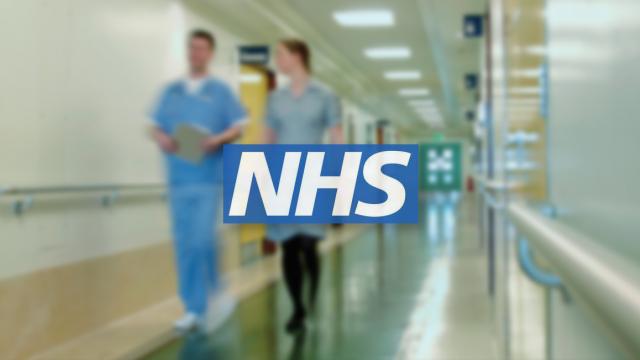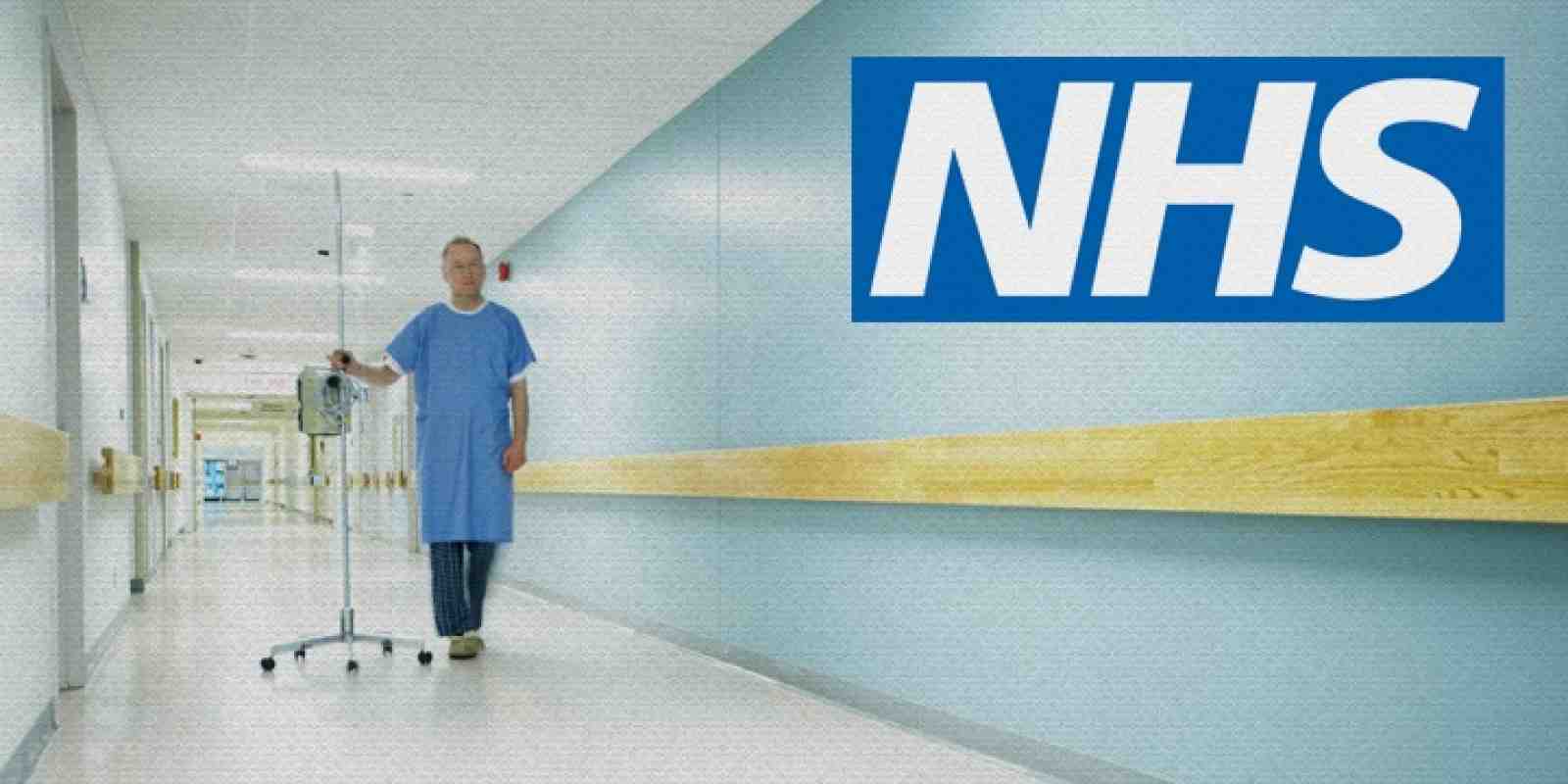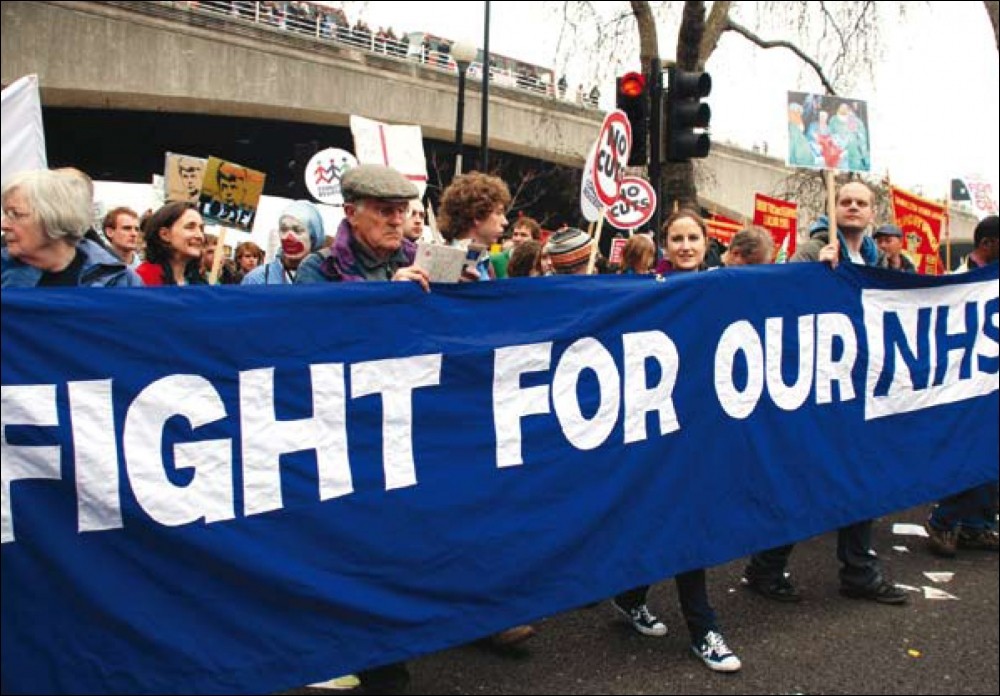
No sooner were the protest banners lowered last month following a second straight strike by junior doctors, who were protesting government plans to impose longer working hours at lower pay, than Britain’s Health Secretary Jeremy Hunt insisted the country's burgeoning healthcare crisis was not "austerity driven."
Fighting back when quizzed recently about the quality of health service in the U.K. at the House of Commons, Hunt said that to blame austerity policies for the country's healthcare woes was “stretching” it. He claimed the government next year will give the sixth biggest funding increase to the National Health Service that it has received in its 70-year history.
Many, however, are not convinced. One criticism of the government's claims that the NHS is being sufficiently funded is articulated in a report by the King’s Fund, based on statistics from the British Social Attitudes Survey. The report found that public discontentment with the health service rose in 2014 more sharply than in any other year on record.
The think tank’s chief economist, John Appleby, told the Independent that the increase in NHS dissatisfaction was “driven by waiting times for appointments and perceptions of underfunding and staff shortages.”
Challenging the notion that the NHS is better funded than ever before, Appleby said the health service was rather being “squeezed as never before.” “Although health spending will grow, growth in the economy as a whole will almost certainly outstrip the relatively small real-terms increase pencilled in for the NHS,” he said.
Britain Ranks 28th in Healthcare Among 30 Countries
A damning report by the Economist Intelligence Unit, which appeared in 2015, compared the U.K .with 29 other wealthy countries in the Organisation for Economic Cooperation and Development (OECED). In that report, Britain took the 28th position in the table.
The report reached its conclusion based on several alarming facts related to dissatisfactory healthcare in Britain. For example, in 2012, out of every 10,000 members of the U.K. population there were just 2.8 doctors, compared to 3.2 in other higher ranking OECD countries.
When it comes to nurses, the report found that there are only 8.2 nurses per 10,000 people in Britain, compared with an average of 8.9 nurses per 10,000 among the 30 nations analyzed. Further figures highlighted in the report included the woefully low number of hospital beds per head – which in the U.K. total just 2.8 per 1,000 people, compared with the OECD average of 4.8 per 1,000 people.
In terms of medical technology and equipment, the study found that Britain has less than half the amount of magnetic resonance image units (MRI) units than the average measured among OECD countries – a statistic that drastically contrasts with claims that the U.K. is quickly becoming Europe’s next big tech hub.
In fact, when it comes to national health, Britain is significantly lagging behind much of the rest of Europe. In 2014, Britain was found to have fewer doctors than almost every country in the EU, with only Poland, Romania, Slovenia and Ireland reporting fewer doctors per head than Britain.
In light of the OECD report, which found that Greece had more than twice has many doctors in relation to its population than Britain, senior doctors warned that the “acute shortages” were putting lives at risk and placing health services under “incredible pressure.”
Doctor Cliff Mann, President of the College of Emergency Medicine, which represents Accident and Emergency doctors in the U.K., bluntly told the Telegraph: “We have been warning for some years that we have got fewer doctors than in most parts of the developed world.”
“When you have shortages of doctors in some areas it means longer waits. In A&E that’s not really an option, so it means doctors work harder and harder, it means there is a greater chance of mistakes, and ultimately it means risks to lives,” Dr. Mann warned.
That was 2014. But instead of taking heed, making conditions more favorable for U.K. doctors and consequently improving the nation’s health service, the government has consistently moved in the opposite direction. Most recently, it has made life tougher for doctors and others working in health care by imposing controversial new contracts that will increase hours and lower pay – provoking a fierce and ongoing row with the medical profession and ultimately creating an even bigger crisis than existed before.
The Paris-based OECD recently called for richer member countries to implement less austerity measures and increase public investment, including on infrastructure projects. But in contrast to this message, Chancellor George Osborne and the Tory government have warned of fresh cuts to public spending in next month’s budget.
Talking to the BBC, Osborne warned that slower growth in the U.K. economy will mean further reductions being made, and said he would “rather look for extra cuts now than risk breaking the manifesto commitment to achieve a surplus in the budget by the end of this Parliament in 2020." Certainly not a statement that concurs with the OECD call to ease up on austerity and invest more in the public domain.
3 WAYS TO SHOW YOUR SUPPORT
- Log in to post comments













